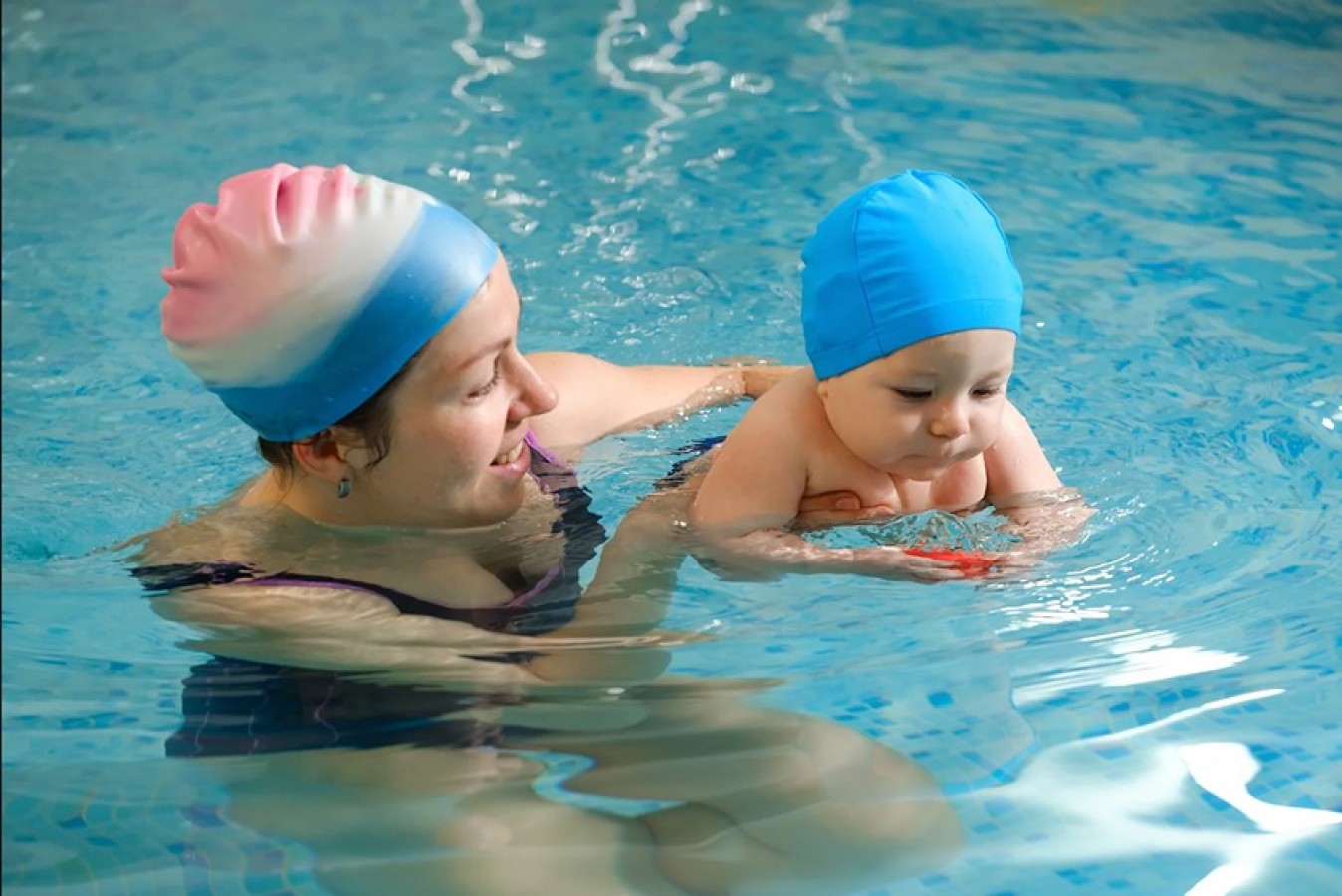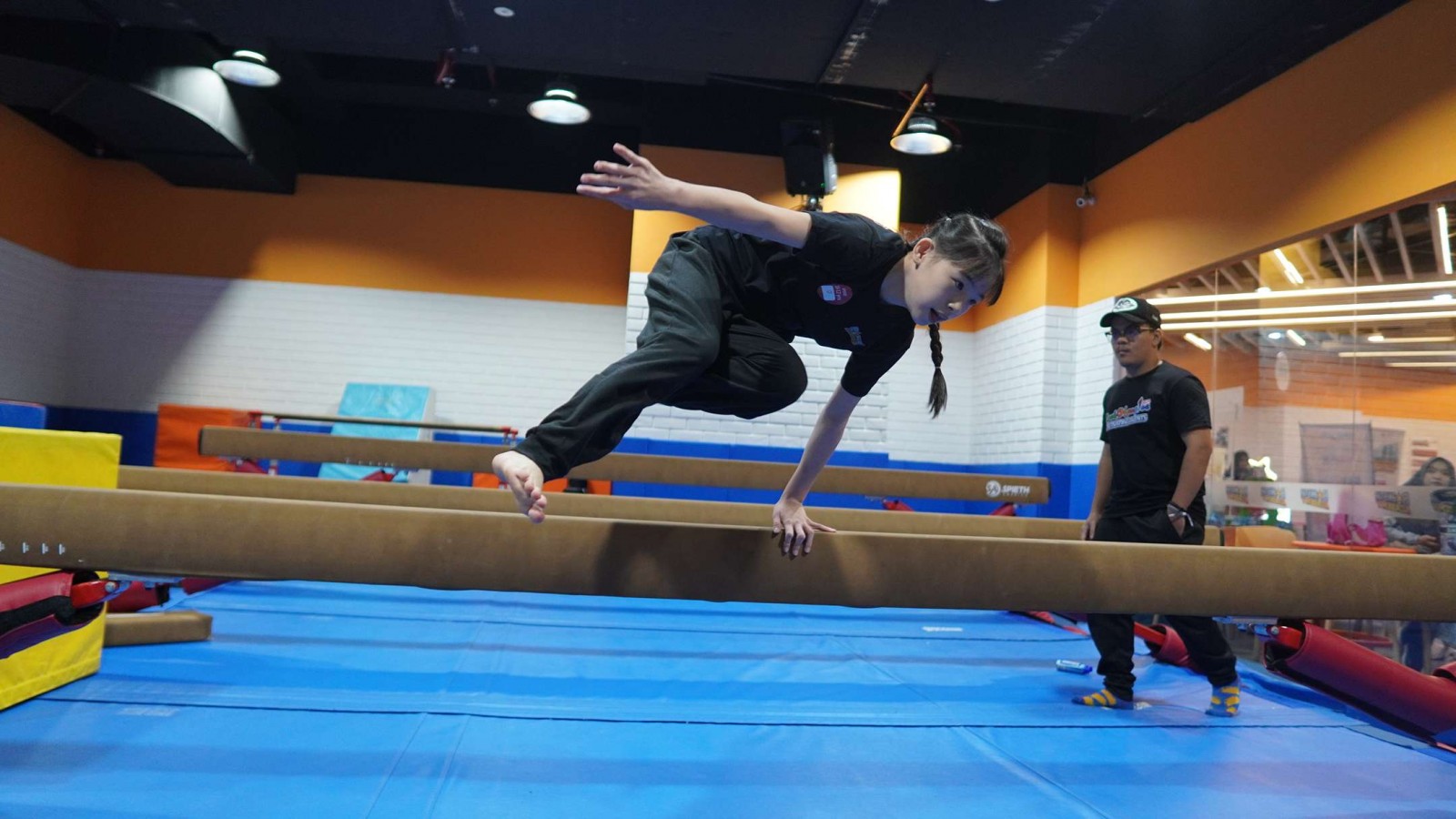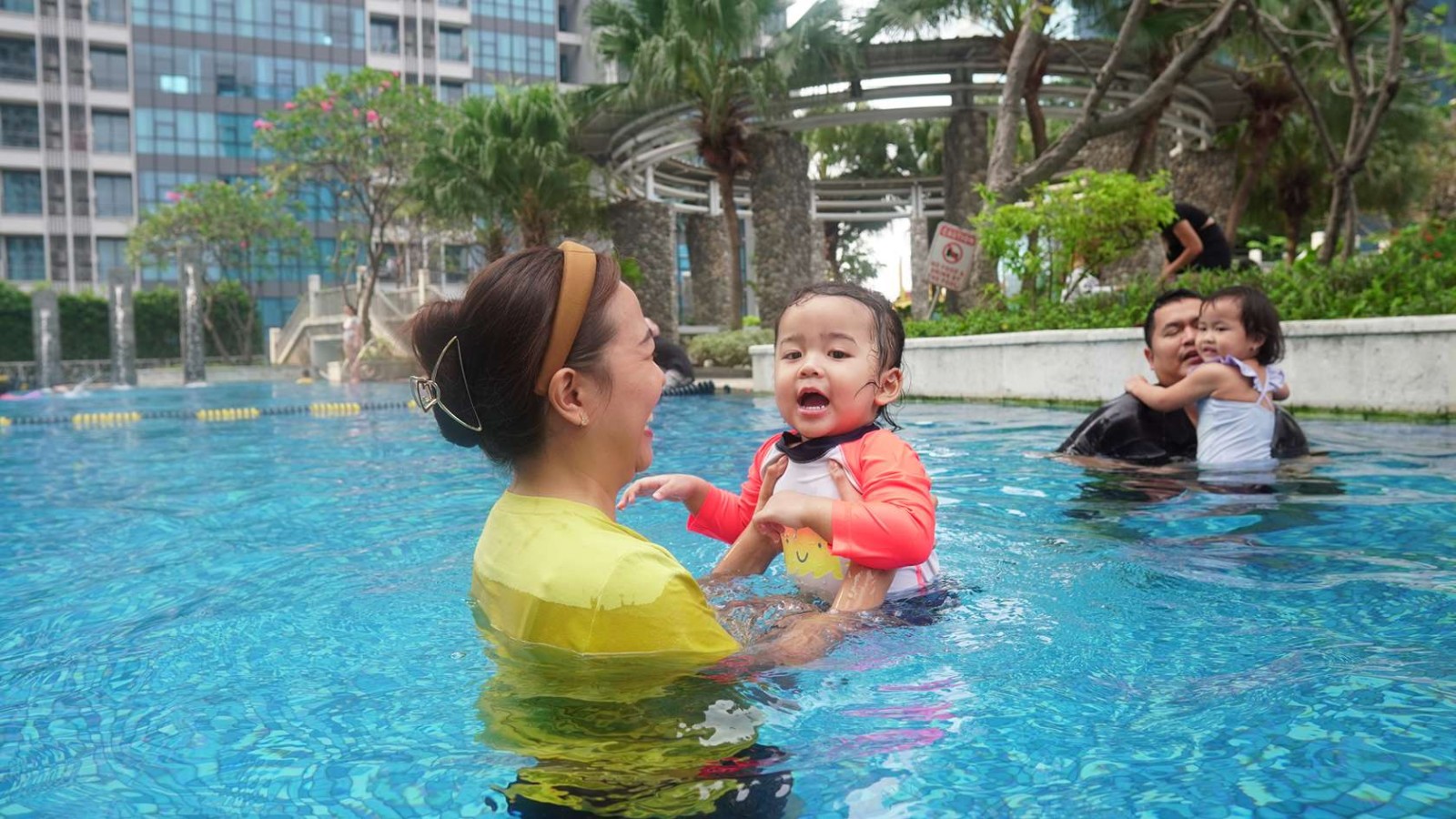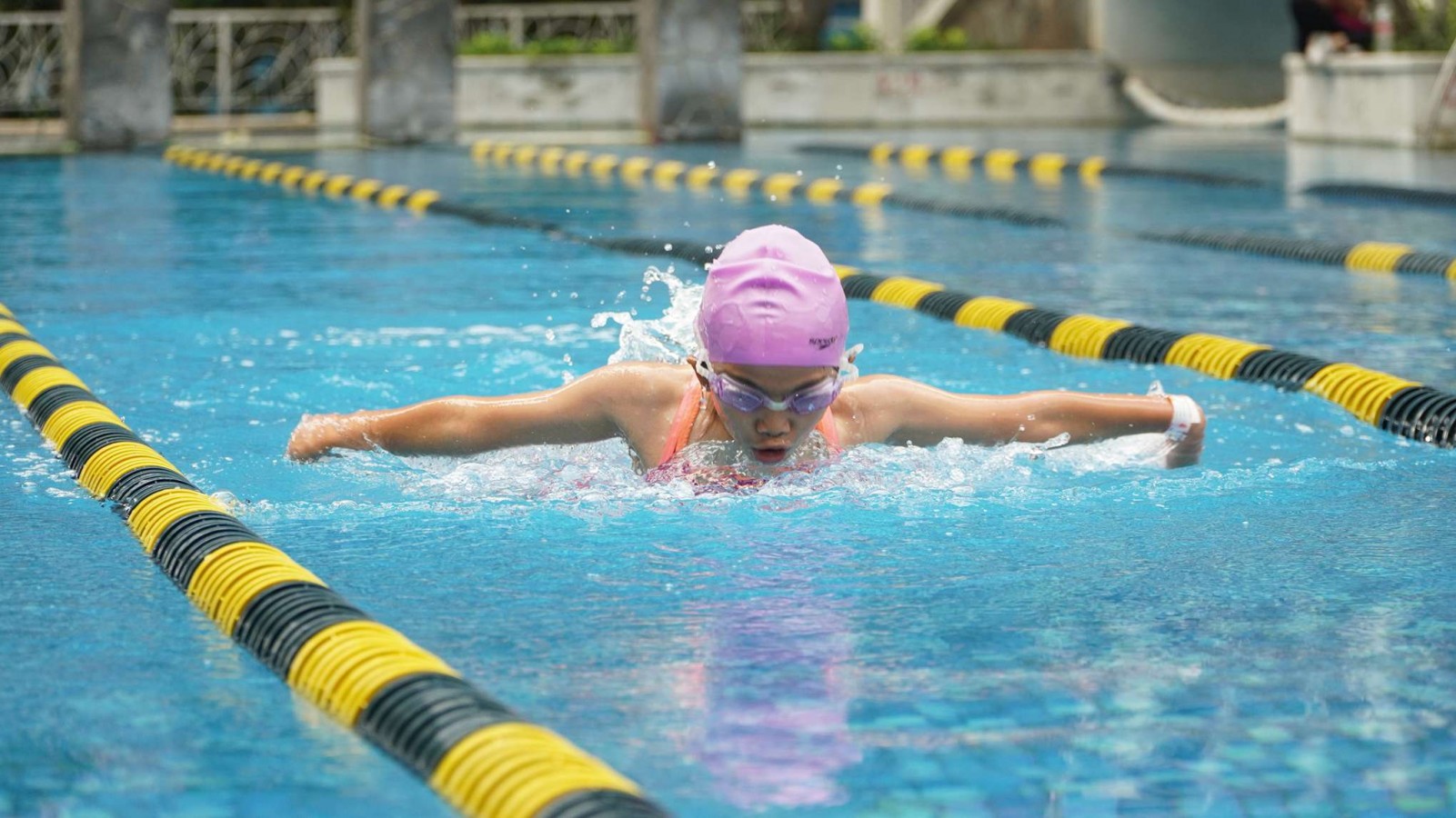Parents Guide on How To Choose The Right Infant Swim Lessons

As parents, ensuring the safety and well-being of our infants is our top priority. One important skill that can significantly contribute to their safety is learning how to swim. Infant swim lessons provide a unique opportunity to introduce water safety skills early on.
However, selecting the right infant swim lessons is crucial for a positive and effective experience. This guide aims to provide parents with valuable insights on how to make an informed decision when choosing infant swim lessons.
When Should My Child Learn to Swim?
Introducing your child to swim lessons at around 6 months old is optimal. By this age, infants can begin developing preliminary skills and comfort with the water. Around 8 months, babies often start to develop a concept of fear, so exposing them to the water earlier helps establish familiarity.
While they may not "swim" at 6 months, the experience sets a foundation for future success in swimming and helps mitigate potential fears later on. Early exposure not only builds water confidence but also fosters a positive association with aquatic environments, contributing to a lifetime of water safety and enjoyment.
What Should Parents Look For When Choosing Swim Lessons?
When choosing swim lessons for their children, parents should carefully consider several key factors to ensure a positive and effective learning experience. The right swim lessons can not only enhance water safety skills but also contribute to a child's overall development.
Here are some essential aspects that parents should look for when selecting swim lessons for their little ones:
1. Age-Appropriate Atmosphere
It is essential to choose swim lessons that provide an age-appropriate atmosphere for your child. Different age groups have distinct developmental needs, and swim lessons should be tailored to address these requirements.
Infants, toddlers, and older children each benefit from specialized approaches that consider their cognitive, emotional, and physical capabilities. Look for programs that offer lessons designed specifically for your child's age range to maximize the effectiveness of the instruction.
2. Touch Supervision
"Touch supervision" refers to the practice of maintaining physical contact with young children while they are in or around water. This hands-on approach is crucial for ensuring the safety of infants and toddlers during swim lessons.
Instructors should be trained in providing touch supervision, which involves being within arm's reach of the child at all times. This proactive measure significantly reduces the risk of accidents and enhances the child's sense of security in the water.
3. Maintain Water Purity
The cleanliness of the swimming facility is paramount for the health and well-being of your child. Parents should look for swim lessons conducted in pools that adhere to strict hygiene standards. The water should be regularly treated and filtered to maintain optimal purity.
Clean changing areas, restrooms, and surrounding spaces contribute to a positive and safe learning environment. Ensuring the facility's commitment to water cleanliness minimizes the risk of waterborne illnesses and creates a more enjoyable experience for both parents and children.
4. Keep the Water Warm
Maintaining an appropriate water temperature is crucial for the comfort and well-being of young swimmers. Infants and toddlers, in particular, are sensitive to changes in temperature, and being in cool water can be uncomfortable and unsettling.
Choose swim lessons that take place in pools with warm water to create a pleasant experience for your child. Warm water also helps relax muscles and allows for better engagement during lessons, contributing to a positive and effective learning environment.
5. Choose a Professional and Experienced Instructor
Look for a swim class led by certified and experienced instructors who specialize in teaching children. A good instructor not only teaches swimming techniques but also helps build your child's confidence in the water.
6. Find an Instructor Who Teaches Water Safety
Swimming isn’t just about strokes and techniques—it’s also about water safety. A great swim instructor will teach children how to float, enter and exit the pool safely, and what to do in case of an emergency in the water.
7. Observe a Class Before Enrolling
A good swim program will allow parents to watch a class before enrolling their child. This gives you a chance to see the teaching methods, class environment, and instructor’s approach to ensure it’s the right fit for your child.
8. Look for Programs with Multiple Sessions
Swimming is a skill that takes time to develop. Choose a program that offers multiple lessons over several weeks to give your child enough practice to build their confidence and master swimming techniques effectively.
The Benefits of Infant Swim Lessons
Infant swim lessons offer a multitude of benefits, going beyond the surface of just teaching babies how to navigate the water. Here are compelling reasons why giving infant swim lessons is a valuable investment in your child's development:
1. Comfort in the Water
Introducing infants to swim lessons at an early age helps them become comfortable and confident in the water. Babies are naturally drawn to water, and by providing them with positive water experiences, they develop a familiarity that can reduce fear and anxiety associated with water later in life.
Learning to be at ease in aquatic environments lays a foundation for a lifetime of water enjoyment.
2. Sensory Development
Swim lessons engage a baby's senses in a unique and stimulating way. The sensation of water on the skin, the sound of splashing, and the gentle resistance of water all contribute to sensory development.
These experiences can enhance a baby's cognitive and motor skills, fostering a greater awareness of their body and the surrounding environment.
3. Parent and Baby Bonding
Infant swim lessons provide a wonderful opportunity for bonding between parents and their babies. Through shared experiences in the water, parents and infants develop a strong emotional connection.
The close physical contact during swim lessons promotes trust and security, strengthening the parent-child relationship. This shared activity also creates lasting memories for both parent and baby.
4. Body and Spatial Awareness
Swimming involves a range of movements that promote the development of body awareness and spatial skills in infants. Floating, kicking, and reaching for objects in the water enhance motor coordination and spatial understanding.
These activities contribute to overall physical development and can have positive effects on a baby's ability to navigate and interact with their surroundings.
Tips for Enjoyable and Safe Baby Swimming Lessons
Baby swimming lessons can bring a mix of emotions which some babies might love it, while others might not be so sure at first. Here’s how to make the experience smooth, safe, and fun for everyone:
- Start in the Bath: Get your baby used to water by making bath time more interactive. Pour water gently over their head, let them splash, and lay them on their back with support. This helps them feel comfortable in water later.
- Avoid Feeding Right Before: To prevent any discomfort or illness, make sure your baby hasn’t eaten just before swimming.
- Calm Baby Before Class: If your baby is cranky or overtired, it’s better to wait until they’re calm. A happy baby will enjoy the class more.
- Arrive Early: Getting to the pool 15 minutes ahead of time gives your baby a chance to adjust to the environment, making the transition smoother.
- Prioritize Safety: Always keep your baby within arm’s reach, even on the pool deck. Safety should always come first.
- Know When to Take Breaks: If your baby seems upset or uncomfortable, take a break. Forcing them to stay in the pool can make them dislike swimming.
- Keep Them Healthy: Don’t bring your baby to the pool if they’re unwell or recovering from illnesses like diarrhea. Keeping them healthy ensures everyone has a safe experience.
These simple steps can help your baby feel more at ease in the water while keeping the experience fun and secure.
Start Your Child's Aquatic Journey Now!
Choosing the right infant swim lessons is a significant decision that can positively impact your child's life. Investing time and effort in selecting the right swim lessons sets the foundation for a lifetime of water safety and enjoyment.
Introducing your infants to the joys of swimming is made possible through Rockstar Academy's Early Childhood Swimming Program. Our specialized classes prioritize enjoyment and fostering comfort in the water, alongside imparting fundamental water safety skills.
These sessions focus on instilling good water safety practices and cultivating essential swimming readiness abilities. Beyond the physical aspect, infants benefit socially, emotionally, and cognitively, fostering holistic development while gaining confidence and competence in the water.
Don’t forget to take advantage of Rockstar Academy's free trial now, and let your child experience the unique blend of fun and learning that sets our Sports & Performing Arts Academy apart. It is also more than just a trial, it's an invitation for your child to become a Rockstar in the pool and beyond!
FAQ
1. When should my baby start swimming lessons?
It's generally recommended to start baby swim lessons between 6 months and 1 year of age. However, always consult with your pediatrician to ensure it's appropriate for your child.
2. How do I introduce my newborn to swimming?
Begin with gentle water exposure in a warm, shallow environment. Hold your baby securely, maintain eye contact, and ensure the experience is positive. Gradually progress to more structured swim lessons as your baby becomes comfortable in the water.



